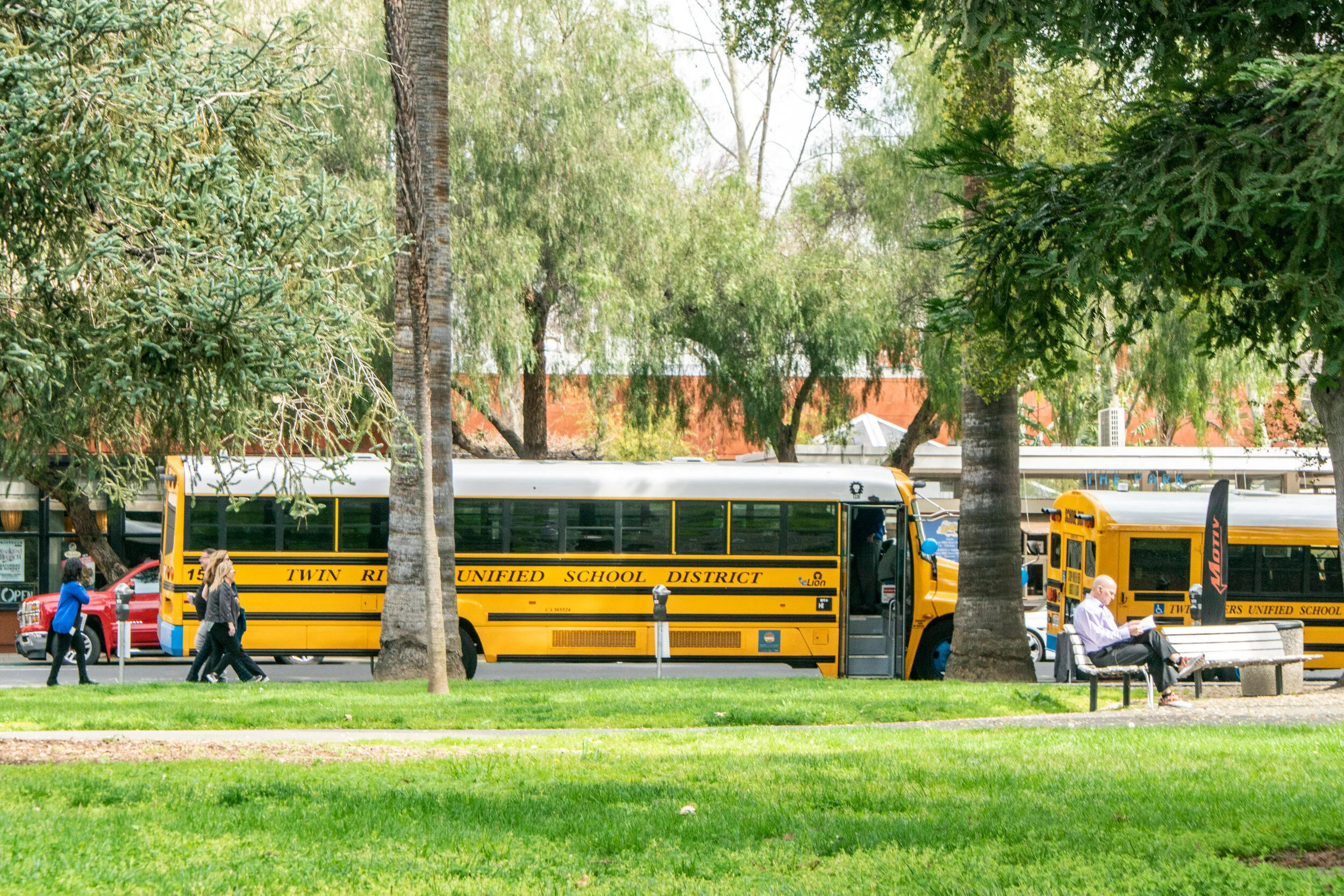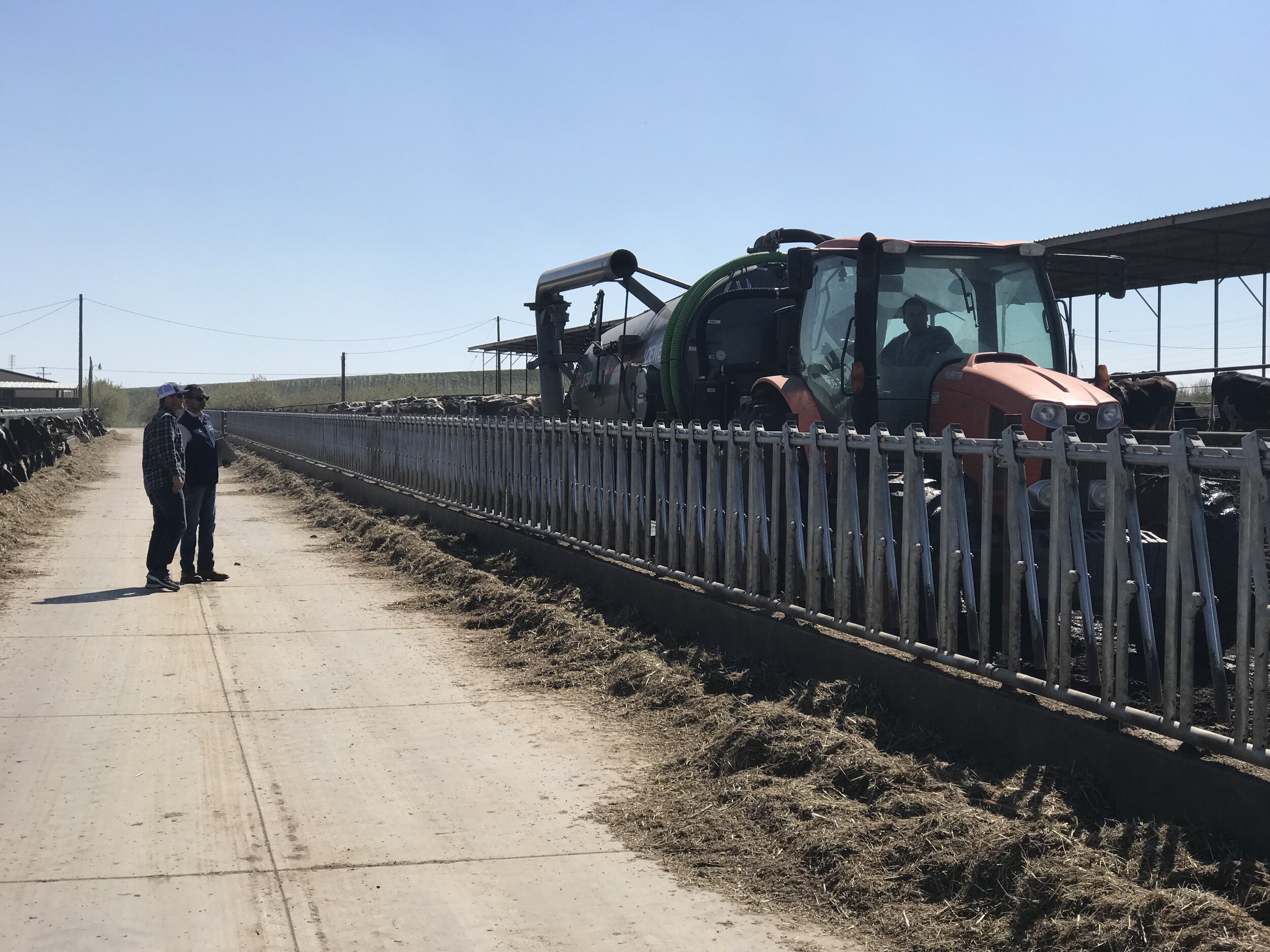SANCO Services received $3 million from California Climate Investments through the Organics Grants program to help fund equipment vital to the operation of a new anaerobic digestion system under construction at the Escondido Resource Recovery Transfer Station.
Converting Food Waste to Bioenergy in Rialto
Rialto Bioenergy Facility, LLC (Rialto) received a $4 million grant to fund the installation of an anaerobic digester and a freezer to salvage food that would otherwise go to the landfill. These will both be important to the operational success of Rialto’s new Southern California facility, which is expected to recycle 300,000 tons of organic waste from the region annually.
Anaerobic Digester Brings Biofuels and Jobs to Perris
Advanced Composting Facility Diverts Organic Waste in Kerman
One of the most advanced composting operations in California is scaling up its operations in Fresno County. Early in 2017, Mid Valley Disposal is opening its new 10-acre, 68,000 square foot composting facility in Kerman, California. In addition to creating 47 new jobs in California’s agricultural heartland, the project serves as a model of sustainability in California’s innovative fight against climate change.
Low-income Weatherization Program Helps Casas de la Viña Residents Save Money and Energy
Dana Guzman is a resident of Casas de la Viña, a 56-unit affordable apartment rental community that serves low-income families and farmworkers. The mother of two boys, Dana moved to Casas de la Viña when she needed to find a new home. Self-Help Enterprises was able to install solar photovoltaic (PV) systems and make energy efficiency improvements at Casas de la Viña with Cap-and-Trade dollars.
Weatherization & Solar PV Project Benefits Low-Income Sacramento Residents
After facing increasingly unaffordable energy bills year-after-year, Milton, a Sacramento County resident, learned about the State’s low-income solar program offered through the Sacramento Municipal Utility District (SMUD). He became interested in the program and was one of many residents that benefited from this assistance
Clean Cars 4 All Vouchers Support Low-income Bay Area Households
Replace Your Ride Program Helps Californians Get into Clean Vehicles
Incentives Help Replace Old, Polluting Vehicles with Clean Cars
Financing Pilot Program Opens Doors to Clean Car Ownership
Marie Deer, an Oakland resident, went from not having a car to acquiring a pre-owned 2015 Honda Insight, a hybrid vehicle that she was able to afford through a financing assistance program available to low income Bay Area residents who live in disadvantaged communities most impacted by air pollution.
Ecological Resilience through Regenerative Grazing
Wetland Restoration with Sea Level Rise in Mind in Contra Costa County
Studies Inform Pathways to a Carbon Neutral Economy
Supported by nearly $2.6 million from California Climate Investments, the California Environmental Protection Agency is working with University of California researchers to carry out two studies that will help California reach its goal of achieving carbon neutrality by 2045. In particular, these studies will examine ways to reduce emissions from the transportation sector, the largest source of greenhouse gas emissions in California. The studies will also quantify air pollution and economic impacts for multiple greenhouse gas emissions reduction scenarios.
Rolling Out the Largest Fleet of Zero-Emission School Buses in North America
With delivery of 10 new Lion Electric all‑electric school buses in December 2020, Twin Rivers Unified School District’s (TRUSD) fleet of 40 zero‑emission buses represents the largest deployment of zero‑emission school buses in North America. Several California Climate Investments programs, including Community Air Protection Incentives, played a crucial role in reaching this major milestone.
Building San Ysidro Community Capacity to Understand and Act on Air Quality Solutions
San Ysidro is a predominantly low-income, 93% Latino community, situated along the US-Mexico border, across from the Mexican city of Tijuana. Sources of air pollution include vehicle exhaust from traffic waiting to cross the San Ysidro Port of Entry, the largest land-border crossing in the Western Hemisphere, as well as air pollution from Mexico.
Understanding Sources and Health Impacts of Local Air Pollution in South Central Los Angeles
Launched in January 2019, the South Central Los Angeles Project to Understand the Sources and Health Impacts of Local Air Pollution (SCLA‑PUSH) aims to help South Central LA organizations and community residents better understand the state of air quality and health in their community and engage in air monitoring and data analysis to advance community‑driven solutions in air quality policy. The project was awarded $300,000 by the AB 617 Community Air Grant Program and is led by Physicians for Social Responsibility–Los Angeles (PSR‑LA).
Twenty-Nine Palms Band of Mission Indians Raises Regional Air Quality Awareness
Comprehensive Manure Management at Hanford Dairy Achieves Multiple Benefits
Alternative Manure Management Approaches in Humboldt and Del Norte Counties
Improving Efficiency and Reducing Emissions through Alternative Manure Management
Dennis DaSilva is a second-generation California dairy farmer whose parents began the family’s first dairy farm in 1983 with 150 cows. The $375,000 grant has allowed Mr. DaSilva to replace an existing solid separation system with a new, more efficient manure separator and concrete pad. Separated manure is dried and composted on the concrete pad and is then used for bedding and fertilizer for forage crops.






















